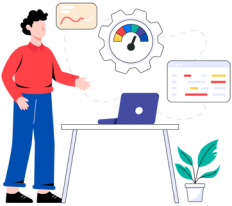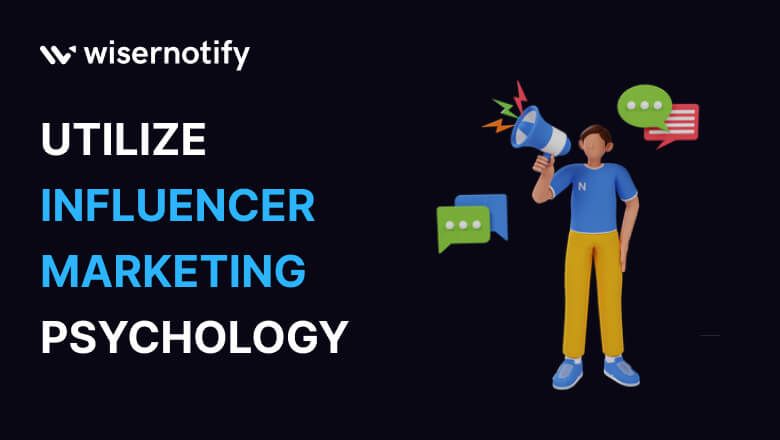Welcome aboard, fellow marketing enthusiasts! You’re in the right place if you hope to stir up a real storm online. This guide deeply delves into one of today’s most potent marketing tools: influencer marketing. But not just that – we’re focusing on harnessing the power of influencer marketing persuasion techniques to drive consumer engagement and boost your brand’s ROI. So, buckle up and prepare for a wild ride into the fascinating world of influencer marketing.
Influencer marketing psychology refers to the understanding and utilizing psychological principles and mechanisms in influencer marketing campaigns. It involves leveraging the power of social influence, cognitive biases, trust, authenticity, and emotional connections to persuade and engage consumers effectively.
Influencer marketing psychology recognizes that various psychological factors influence human behavior, and leveraging these factors can significantly impact the success of marketing campaigns. By understanding how people think, make decisions, and respond to different stimuli, marketers can tailor their influencer marketing strategies to tap into these psychological drivers.
Psychology of influencer
The psychology of influencers revolves around understanding how individuals with a significant online presence, often on social media, can impact their followers’ thoughts, behaviors, and purchasing decisions. Influencers are effective because they establish trust and authenticity with their audience, creating a sense of connection and relatability. This is often rooted in psychological principles such as social proof, where people mimic the actions of others, and the desire for social validation, where individuals seek approval and belonging. Understanding these psychological drivers helps influencers create compelling content and allows brands to leverage influencers in marketing strategies effectively.
Here are some effective ways brands can utilize influencer marketing psychology to create compelling campaigns:
1. Power of Influencer Marketing Persuasion Techniques
The Promise of Influencer Marketing
In the hustle and bustle of the digital landscape, influencer marketing stands as a beacon of authenticity and relatability. The big question is, how can we tap into this goldmine effectively?
Influencer marketing isn’t just about picking a popular face and placing your product beside it. It’s about strategic partnerships, creating engaging content, and using the power of persuasion to capture the audience’s attention. Doing this can drive consumer engagement and supercharge your brand’s ROI.
Influencer Marketing and Persuasion Techniques: The Winning Combination
To nail influencer marketing, we’ve got to blend in some psychology – persuasion techniques, to be precise. These techniques are the backbone of effective marketing, persuading consumers to engage, purchase, and ultimately become loyal to your brand.
2. Influencer Selection: Finding Your Brand’s Perfect Match
Influencer selection is a critical first step in this journey. Choose wisely, and you’ll have a powerful brand ambassador who can connect with your target audience on a deep level. Here’s how to find your brand’s perfect match:
- Look beyond follower count: Focus on relevance, engagement rate, and audience demographics.
- Evaluate authenticity: Genuine influencers tend to have more influence over their audience.
- Ensure brand alignment: The influencer’s values and style should align with your brand.
3. Persuasion Techniques in Influencer Marketing
Ever wonder why specific influencer posts seem to strike a chord more than others? Let’s pull back the curtain and explore some of the most effective persuasion techniques used in influencer marketing.
Social Proof
Social proof, or the idea that we base our choices on what others are doing, is a powerful persuasion technique. Influencers are masters at this, often showcasing how they use products in their everyday lives.
Reciprocity
When influencers provide valuable content, followers often feel compelled to give something back. This might involve engaging with posts, buying a product, or sharing content within their networks.
Scarcity
Limited-time offers or exclusive products promoted by influencers can create a sense of urgency, pushing consumers toward quick purchase decisions.

Boost your credibility and trust with our social proof plugin
Try WiserNotify to add social proof to your website.
- Trusted by 11,000+ online business
- Supports 200+ marketing & website builders
- Automate your social proof
4. Creating Engaging Influencer Content
Content is the currency of influencer marketing. Let’s talk about creating content that keeps followers coming back for more.
Storytelling
Humans are hardwired for stories, and influencers who weave product endorsements into captivating narratives tend to see higher engagement rates.
User-Generated Content (UGC)
Involving followers in content creation fosters community and increases engagement. Contests, challenges, or simply requesting followers to share their experiences with a product can provide a treasure trove of UGC.
Interactive Content
Interactive content, such as polls, quizzes, and live Q&A sessions, can increase engagement and provide valuable insights into consumer preferences.
5. Analyzing and Improving ROI
Keeping a close eye on your campaign’s performance is crucial to ensure you’re maximizing your ROI. Here’s how you can track and optimize your influencer marketing efforts:
- Set Clear Objectives: Know what you want to achieve. Is it brand awareness, lead generation, or sales?
- Use Tracking Tools: Promo codes, UTM parameters, and social media analytics to track campaign performance.
- Measure and Optimize: Analyze your metrics regularly and make data-driven adjustments to your strategy.
6. The Future of Influencer Marketing
Influencer marketing is here to stay, and its power to persuade continues to grow. With technological advancements and shifts in consumer behavior, the future promises even more exciting opportunities. The trick, as always, is staying ahead of the curve. Keep an eye on emerging trends and be ready to adapt.

